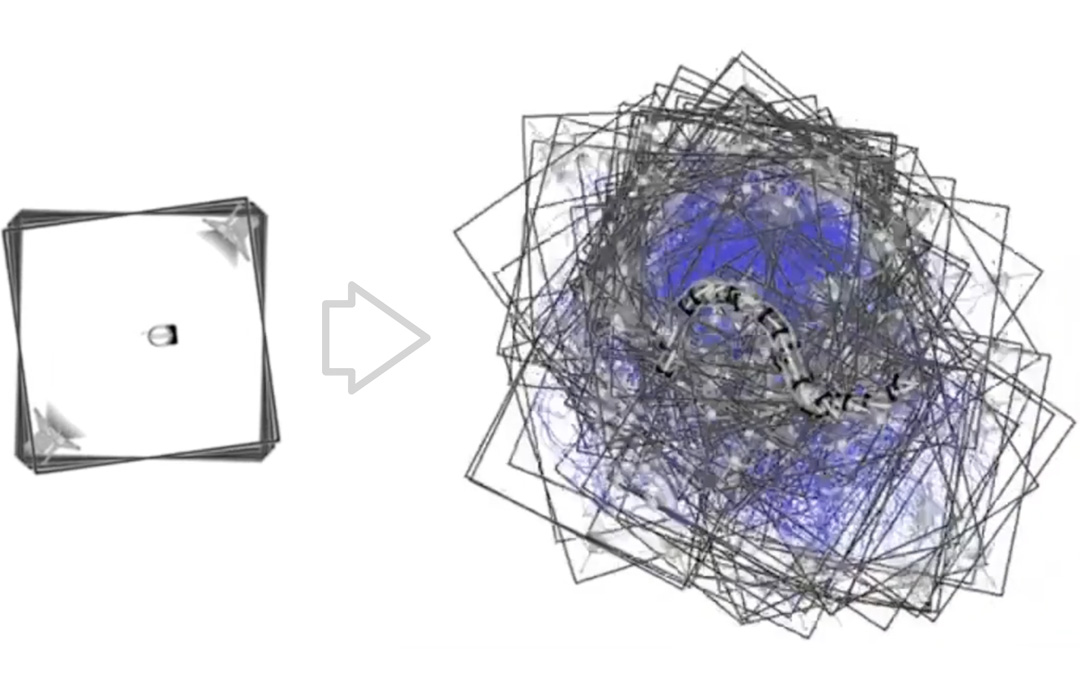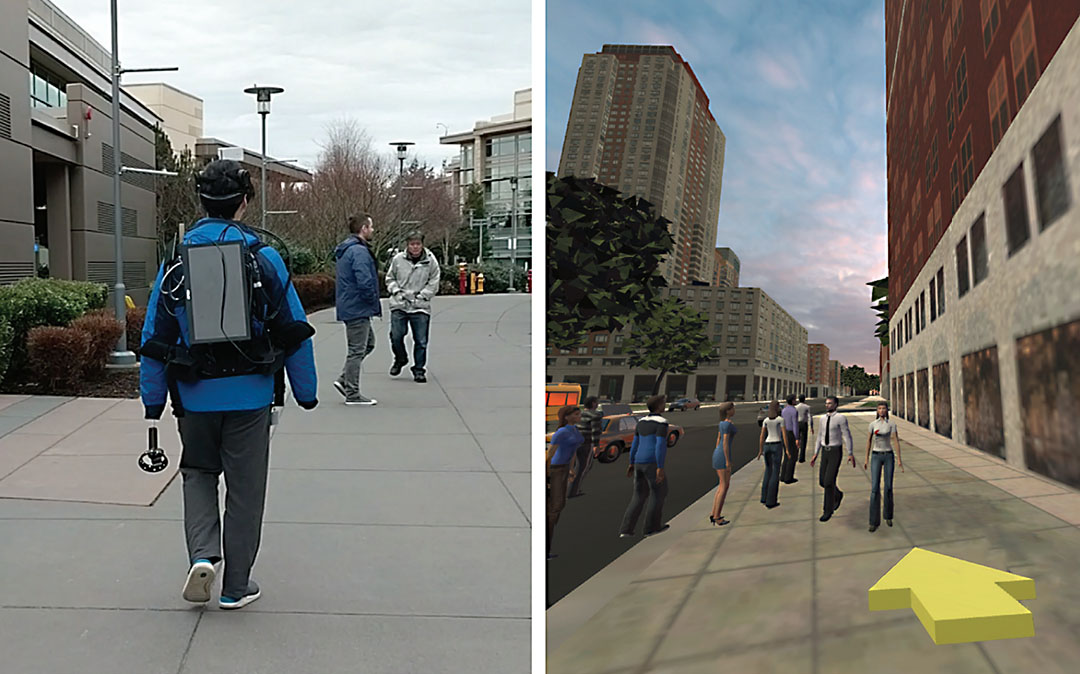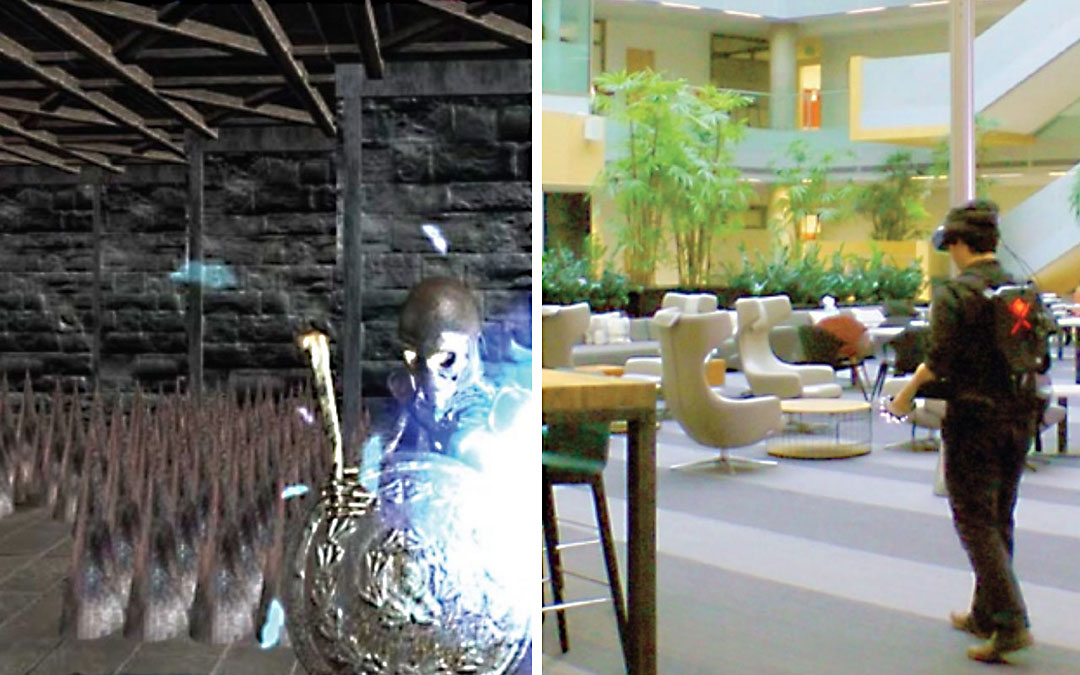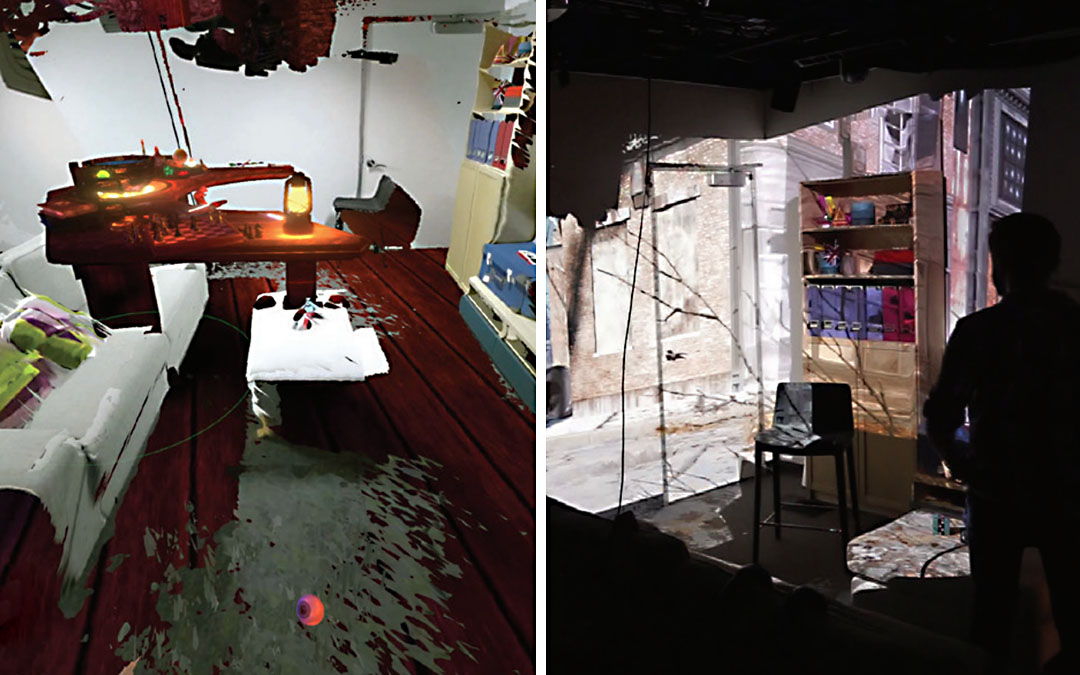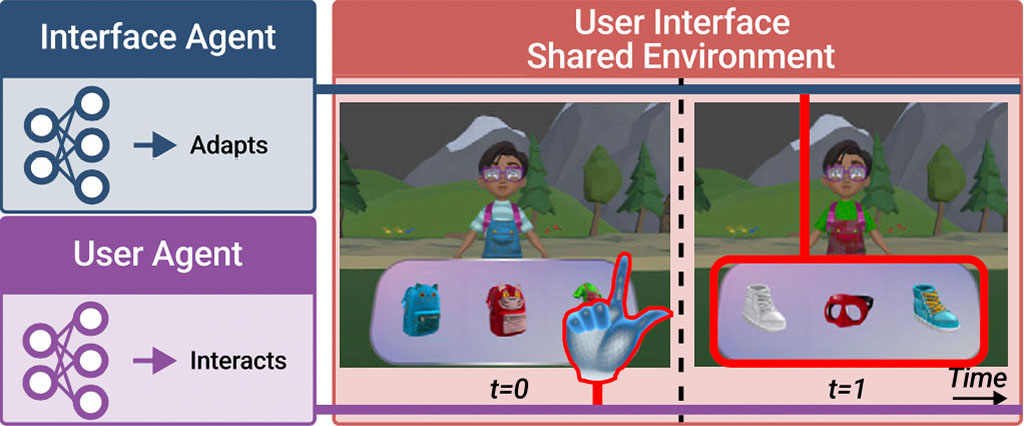The Chaotic Behavior of Redirection
Revisiting Simulations in Redirected Walking
IEEE VR 2022 Best PaperAbstract
Redirected Walking (RDW) is a common technique leveraged to allow real walking for exploring large virtual environments in constrained physical tracking spaces. Effective RDW is challenging due to its complexity and disturbance factors (e.g., spontaneous user behavior). Existing techniques range from combinations of simple motion scaling to more elaborate curvature injections and reactive, predictive, or scripted steering concepts. However, many of these approaches were evaluated in simulation only, and researchers argued that the findings would translate to real scenarios to motivate the effectiveness of their algorithms. Using the Redirected Walking Toolkit and its virtual path generator, a randomized waypoint-based path generator has been common practice, although its built-in simplifications assume sequential user behavior regarding translation and rotation. In this paper, we argue that pure simulation-based evaluations employing such simplified path generators require critical reflection. We demonstrate RDW simulations that show the chaotic process fundamental to RDW, in which altering the initial user’s position by mere millimeters can drastically change the resulting steering behavior. This insight suggests that RDW is more sensitive to the underlying data than previously assumed. Thus, we rigorously analyze the influence of commonly used synthetically generated paths on multiple state-of-the-art steering concepts and compare them against previously recorded real paths.
Video
Reference
Christian Hirt, Yves Kompis, Christian Holz, and Andreas Kunz. The Chaotic Behavior of Redirection -- Revisiting Simulations in Redirected Walking. In Conference on Virtual Reality and 3D User Interfaces 2022 (IEEE VR).
